I have been told to connect to a customer's server using two-way authentication. The server authentication is working smoothly but we are having huge troubles getting the client authentication in place. Let me try to explain our hassles.
Some time ago my company bought a certificate at GeoTrust, a certificate which should be perfectly valid to use as our client certificate. Apparently the customer did not manage to add this GeoTrust certificate appropriately to their truststore and we therefore saw the error unknown_ca in our SSL handshake logs every time we tried to connect to their server.
Instead the customer asked us to send them a certificate signing request (csr) and we received back a root certificate as well as a certificate which should be used as our client certificate. After having updated our keystore accordingly we are now seeing the error unsupported_certificate in our SSL handshake logs instead. A closer look at the customer signed client certificate reveals that the new certificate is explicitly having the Server Authentication extension but does not have the Client Authentication extension. I find the correlation between the unsupported_certificate and the missing Client Authentication extension quite obvious, but the customer refuses to accept the missing Client Authentication as a valid explanation (and therefore refuses to create a new and properly extended client certificate for us). This is what the customer argues:
The customer has sent me a screen shot of a no certificate returned from his logs and claims that this log entry means that I am passing the client certificate over the wire in a wrong format:

In order to strengthen his assertion about me submitting the client certificate in a wrong format, the customer has sent me the following TCP dump screen shot where a pkcs has been circled:

As I see it, the pkcs-9-at-emailAddress is just the standard way of including email address information in a certificate and has nothing to do with the certificate being submitted in a wrong format. Also I have found a place in Google where it is mentioned that the no certificate returned log entry can occur in cases where a client certificate is missing the Client Authentication extension.
In order to rule out that it is the keystore.jks and truststore.jks being used by our Java codes which are malformed, I have tried to connect to their server using just an OpenSSL command:
openssl s_client -CAfile caroot.cer -cert client.cer -key client.key -connect <host>:<port>
Execution of this OpenSSL command results in the exact same unsupported_certificate error.
I would greatly appreciate if someone could help me understand whether we are right or the customer is right. Thanks a lot.